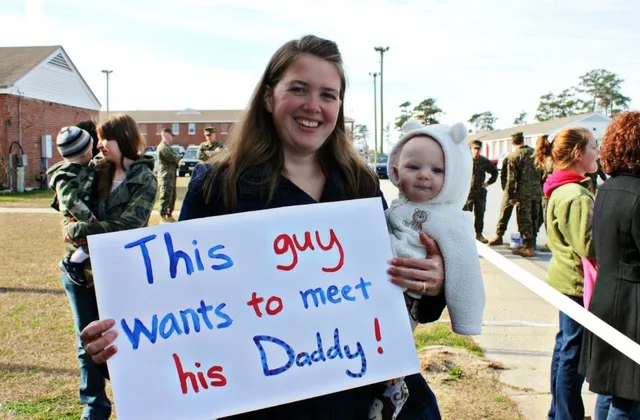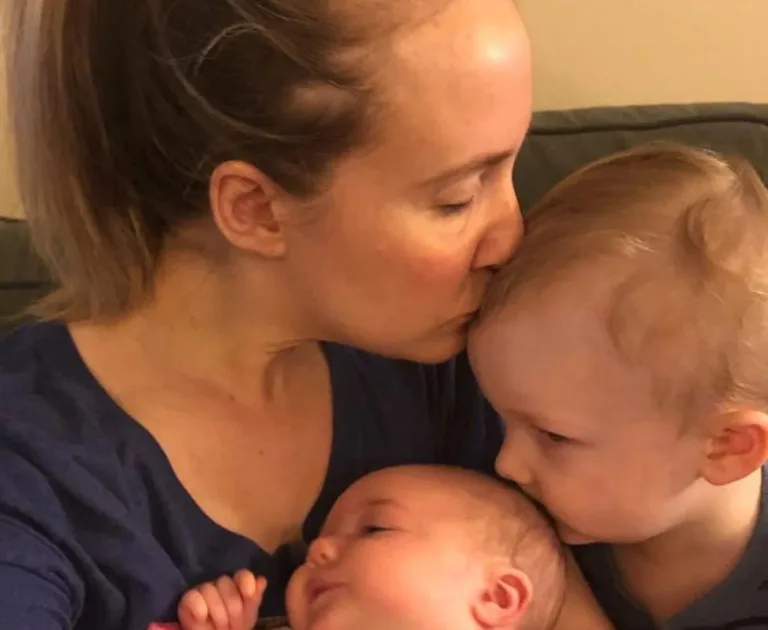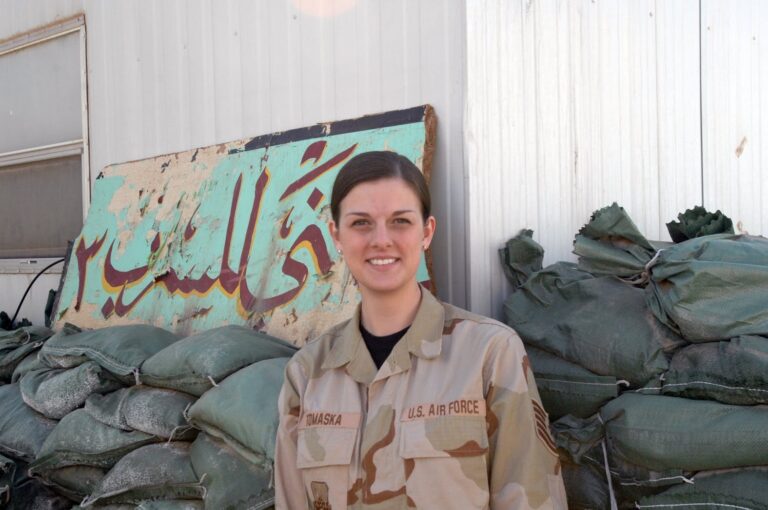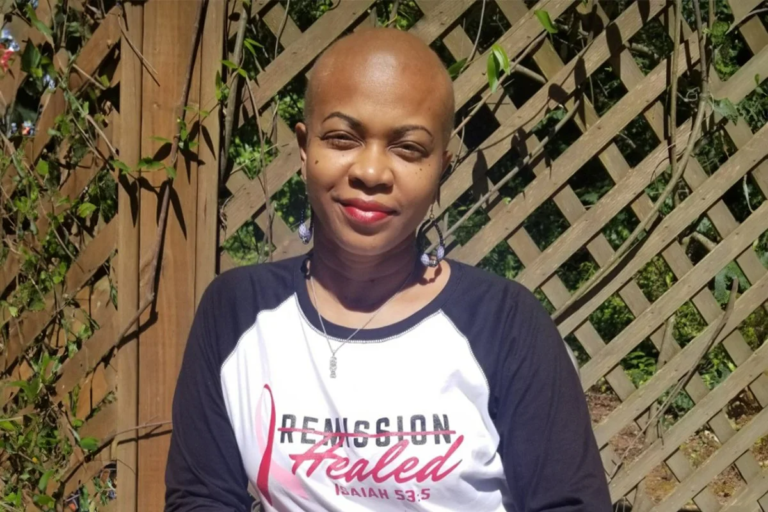The night I gave birth, the hospital lost power. The nurses gave me a flashlight and told me to shelter in the hallway. Outside, a Category 3 hurricane whipped at the trees, taking down power lines, blocking roads and making the large glass windows in patients’ rooms unsafe.
I sat in the hallway alone, clutching my newborn, and wishing desperately that my husband could be there to comfort me.
But he couldn’t. He was fighting a war overseas.
During the height of the U.S. involvement in Afghanistan, my husband — a Marine — deployed there for seven months. It was his second time in Afghanistan, and his fifth combat deployment in the 10 years we had been together.
But this time was different, because I was pregnant when he left.
From the moment I learned I was pregnant, we knew my husband would not be present for the birth. He was scheduled to deploy when I was eight months along. At that time, very few exceptions were made for service members to attend their babies’ births.
So I spent the months of that pregnancy planning, preparing and doing what I could ahead of time to make it easier to give birth alone. This was my third baby, so I knew what physical and emotional challenges to expect.
I made arrangements for my mom to stay with my other kids and asked a good friend to come to the hospital and hold my hand through labor. I connected with a doula through a local nonprofit so there would be someone to drive me to the hospital when labor began.
I was prepared. I did everything I could, and in the final month of pregnancy, I came to terms with my situation and felt ready to handle it.
But then there was a hurricane. And that changed everything.
We were stationed at Camp Lejeune, a military base in coastal North Carolina. The week of my due date, Hurricane Isabel began gathering strength over the Atlantic Ocean. And she was heading straight for us.
The military base declared it would shut down for the storm. But that’s where I was supposed to give birth!
I couldn’t evacuate now. I was already past my due date, so I couldn’t risk going into labor with my toddlers in the car.
For a few wild days, I didn’t know where I would deliver the baby. I walked the streets of my neighborhood in the muggy August heat, hoping to induce labor before the hurricane. With my mom’s help, I prepped my home for the storm. We moved outdoor items into the garage, bought extra water and tarps, and stocked up on canned goods.
After some frantic phone calls, I learned the base hospital would remain open with a skeleton crew for people like expectant mothers.
I could deliver at my hospital, but I would have to go through the birth alone. Many families were evacuating inland, including the friend I’d asked to be with me during labor. But at least the doula would be with me, which helped calm my nerves.
Finally, the day before the hurricane hit, I went into labor. I timed my contractions and communicated with the doula. She helped me decide when to go to the hospital, and when the time came, she drove me there.
I was grateful to have her there during check-in. The contractions were painful and made it difficult to answer questions and sign forms. She shared information about my contractions and noticed a problem with the baby’s heart rate on the monitor. Near nightfall that Friday, I was admitted.
Unfortunately, my doula, who had been volunteering to help me, had to leave soon afterward because another woman went into labor prematurely. The hurricane lowered the barometric pressure, which rumors say can cause babies to drop early. She sent another friend of hers — also a doula — to be with me in the hospital. Her presence was helpful, but since we’d never met before, it was frustrating that I didn’t have one familiar face in the delivery room.
The person I most wanted to be there — my husband — was on the other side of the world, in the Afghanistan desert.
Once I was admitted, I sent a Red Cross message to my husband. They contacted his military leadership, and he got permission to sit in the communications tent all day. We didn’t have an option for a video call, but we could use a messaging app. So I clutched my phone and sent him updates.
It was shortly before midnight when I texted, “Getting ready to push!” Soon after, I sent him a photo of our newborn baby boy.
The birth went relatively smoothly, and the baby was healthy. When it was over, I felt incredible relief and pride. This event I’d dreaded for months was finally over. I had done it! I’d never felt stronger and more confident in my womanhood.
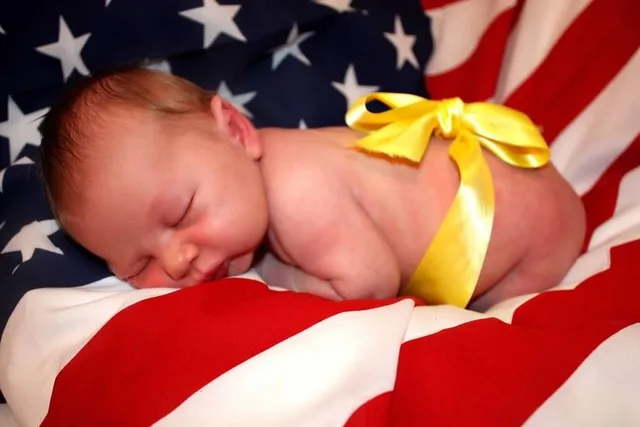
Then, the storm hit, and everything went downhill.
First, the hospital lost power. The emergency generators only served the labor and delivery ward. On the recovery floor where I was, everything went dark.
Next, we had to shelter in the hallway. Every other mom had a spouse or parent with them. I felt so miserably alone.
Then, there was no food. My post-birth meal was a granola bar and some fruit snacks from the nurses. That was the only meal provided all day Saturday.
By Saturday evening, I was checked out as a patient, but I couldn’t leave. It was only a few hours after the storm. Fallen trees blocked roads throughout town and the base was still closed, so I couldn’t get a ride home.
Since I was no longer a patient, I didn’t qualify for hospital meals. I was a mom nursing a newborn and recovering from birth, but there was no one to take care of me. My first hot meal was on Sunday morning. I had to carry the baby down three stories of stairs (very slowly, since everything still hurt) and buy a meal at a food truck parked outside.
Shortly after, the base reopened and my mom was finally able to drive me home.
It took me a long time to process the trauma of that deployment birth. Years later, the sight of trees swaying in the wind caused my heart to race as I recalled the pine trees bent by the wind outside the hospital window. I’ve written and talked about the experience before, including in my book, “Open When: Letters of Encouragement for Military Spouses,” but even now, thinking about the experience brings a cold rush of adrenaline and sends chills through my body.
I learned a lot from that traumatic experience. I now know the importance of having multiple birth plans and thinking through emergency situations like not having a ride to the hospital. Most important, I’ve learned the strength of my own body.
I faced a difficult situation alone, and I grew in confidence because of it.
Have a Real Women, Real Stories of your own you want to share? Let us know.
Our Real Women, Real Stories are the authentic experiences of real-life women. The views, opinions and experiences shared in these stories are not endorsed by HealthyWomen and do not necessarily reflect the official policy or position of HealthyWomen.


